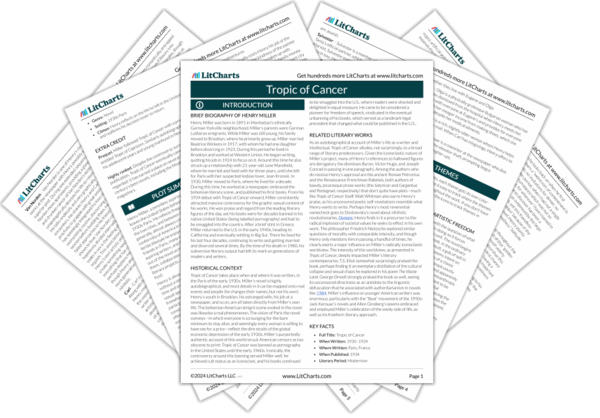compares the prostitute’s genitalia to the obscenity and “great yawning gulf of nothingness” that is the world itself. He continues in this vulgar yet lyrical vein at great length, revolving around ideas of embracing life’s horror and creating one’s own values. In between, he recalls how Mona once called him a great man. Henry then reflects on his artistic heroes and concludes they are all figures who strive too intensely to satisfy common tastes, rather than expressing themselves perfectly according to convention. Henry proudly places himself in that lineage and furthermore asserts that he and his forbears are properly “inhuman.” He reflects on Dostoevsky’s
Demons and finally resolves into a freewheeling cosmic rhapsody that embraces “everything that flows,” from semen to stars.


